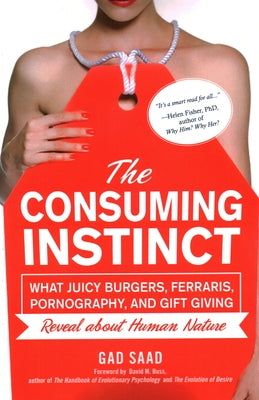Description
In this highly informative and entertaining book, the founder of the vibrant new field of evolutionary consumption illuminates the relevance of our biological heritage to our daily lives as consumers. While culture is important, the author shows that innate evolutionary forces deeply influence the foods we eat, the gifts we offer, the cosmetics and clothing styles we choose to make ourselves more attractive to potential mates, and even the cultural products that stimulate our imaginations (such as art, music, and religion). The book demonstrates that most acts of consumption can be mapped onto four key Darwinian drives-namely, survival (we prefer foods high in calories); reproduction (we use products as sexual signals); kin selection (we naturally exchange gifts with family members); and reciprocal altruism (we enjoy offering gifts to close friends). The author further highlights the analogous behaviors that exist between human consumers and a wide range of animals. For anyone interested in the biological basis of human behavior or simply in what makes consumers tick-marketing professionals, advertisers, psychology mavens, and consumers themselves-this is a fascinating read.
Author: Gad Saad
Publisher: Prometheus Books
Published: 09/10/2020
Pages: 392
Binding Type: Paperback
Weight: 1.45lbs
Size: 8.90h x 6.00w x 1.10d
ISBN13: 9781633886438
ISBN10: 1633886433
BISAC Categories:
- Psychology | Applied Psychology
- Business & Economics | Marketing | General
- Psychology | Physiological Psychology
Author: Gad Saad
Publisher: Prometheus Books
Published: 09/10/2020
Pages: 392
Binding Type: Paperback
Weight: 1.45lbs
Size: 8.90h x 6.00w x 1.10d
ISBN13: 9781633886438
ISBN10: 1633886433
BISAC Categories:
- Psychology | Applied Psychology
- Business & Economics | Marketing | General
- Psychology | Physiological Psychology
About the Author
Gad Saad, Ph.D. (Montreal, Canada), a popular blogger for Psychology Today ("Homo-Consumericus"), is a professor of marketing at the John Molson School of Business at Concordia University. He holds the Concordia University Research Chair in Evolutionary Behavioral Sciences and Darwinian Consumption and is the author of The Evolutionary Bases of Consumption, plus numerous scientific papers.

